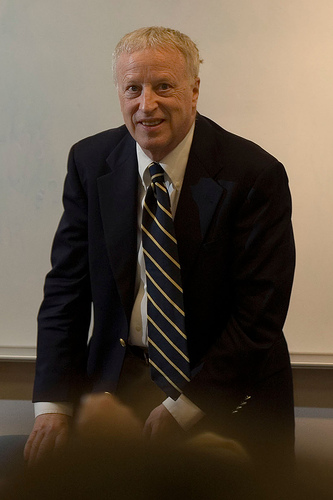- Published on
【Lemon Market】How to Avoid Being Scammed by Programming Schools

In a nutshell
- The world of engineering is too deep, so ordinary people cannot judge what is right at all. As a result, there are endless cases of people who want to become engineers being deceived by programming schools.
- A market with high information asymmetry between the provider of goods and services and the consumer is called a lemon market in microeconomic terms. In the American used car market, consumers cannot tell which used cars are good, so useless products are compared to lemons and the market is called a lemon market.
- The trick for people who want to become engineers to protect themselves from lemons is to either train under an engineer or to actively exchange information with other people who want to become engineers. In other words, the service of the French programming school 42 is groundbreaking.
The increasing number of programming school scams
As an engineer, what is frustrating is programming school scams.
The engineer market is a state where demand and supply are out of balance. Even among engineers, there is a wide range of skill gaps and genres, and demand continues to exceed supply.
Recently, the number of businesspeople and university students who want to become engineers has been increasing, and I have often been asked for advice, so I always talk about the lemon market.
This is because if you are not an engineer as a job, you will not know the quality of the skills and curriculum offered by the school, or the reality of the generous employment support. This is called information asymmetry.
In recent years, the number of programming schools that do not provide skills in exchange for high tuition fees has been increasing, and as a consumer, you should first learn the concept of the lemon market so that you do not get caught in a programming school scam. If you learn from history, you can avoid the pitfalls yourself.
What is the lemon market where consumers are deceived?
The lemon market is a concept presented by the American theoretical economist George Akerlof (1970), and it explains the mechanism by which used cars purchased in the American used car market are prone to breaking down.

Yan Chi Vinci Chow - https://www.flickr.com/photos/ticoneva/444805175/, CC BY 3.0, Link
The background is that the seller of a product is familiar with the information about the product and can judge its quality, but the consumer cannot.
Normally, sellers should inevitably provide good products in order to compete for consumers to buy their products, but consumers do not know the quality of the products.
In this case, sellers gradually become more cost-oriented, thinking, "It doesn't matter what kind of product I put out to consumers, they won't know the difference anyway," and if the brakes are not applied, the market will be flooded with terrible products. This is called adverse selection.
This is exactly the situation surrounding programming schools, which has become a perfect hunting ground, and because consumers cannot judge the quality of programming schools at all, fraudulent programming schools are appearing one after another.
Train or exchange information with peers
So how can people who want to become engineers protect themselves from fraudulent programming schools?
One way is not to rely on programming schools. It could be me, but you could ask someone with engineering experience "who should I study under?" and change jobs as an apprentice.
Just like in other artisan worlds, the world of engineering is one where your skill growth changes depending on who you learn from. It is difficult to clear the information asymmetry regarding programming, but you can clear the information asymmetry in the sense of knowing people who are knowledgeable about programming.
A second method is for consumers to team up. So-called word-of-mouth and reviews are a form of solidarity among consumers against sellers. People who want to become engineers exchange information with each other.
Recently, it is said that a tuition-free programming school from France called "42," where students learn programming while cooperating with each other, is coming to Japan. If you interact with people who have the same aspiration of becoming an engineer, you will have the same worries and a high probability of being able to clear the same information asymmetry. In other words, people who have been engineers for a long time no longer fully understand the feelings of beginners, so it is valuable to interact with people at the same stage.
From Note "I tried to summarize about the French programming school 'Ecole 42'"

